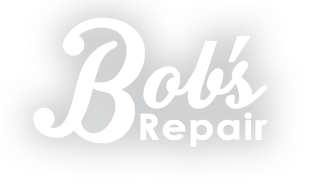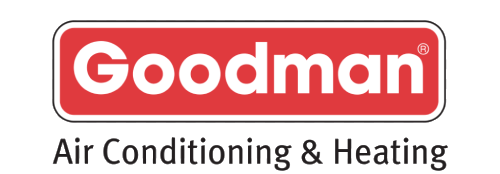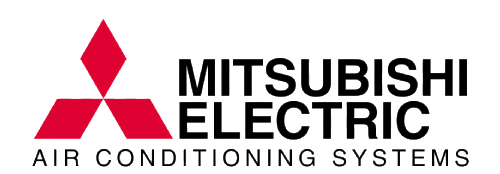In this comprehensive guide, we delve into the world of AC repair, equipping visitors with the essential knowledge to understand common issues, troubleshoot them, and discern when to call in professionals. We aim to empower users with valuable information, enabling them to make informed decisions about their AC system.
Understanding the Basics of Your AC Unit
An air conditioning (AC) system, often called an AC unit or HVAC (Heating, Ventilation, and Air Conditioning) system, is more than just a cooling device. It’s a complex machine with various components working together to provide a comfortable indoor environment. Whether it’s a central air system or a standalone air conditioner, each has a unique set of components contributing to its functionality. An important aspect that can further enhance its functionality and longevity is shading your AC unit.
The primary function of an AC system is to remove heat and humidity from an occupied space’s interior, improving the occupants’ comfort level. Notably, air conditioning can be used in domestic and commercial environments. This process is most commonly used to achieve a more comfortable interior environment, typically for humans and other animals.
However, air conditioning is also used to cool and dehumidify rooms filled with heat-producing electronic devices, such as computer servers and power amplifiers, and to display and store some delicate products, such as artwork.
Basic Components of an AC System
An AC system comprises several key components, including the compressor, condenser, evaporator, expansion valve, and air handler. Each part is crucial in cooling, distributing, and removing heat from indoor air.
The compressor is the heart of the system. It compresses the refrigerant, raising its temperature and pressure. The condenser then cools the high-pressure refrigerant and condenses it into a liquid. The expansion valve controls the refrigerant going into the evaporator coil, where it evaporates and cools the indoor air. The air handler then circulates the cooled air throughout your home.
How an AC System Works
The AC system transfers heat from inside your home to the outside. It does this through a cycle of evaporation and condensation, using a refrigerant as the heat transfer medium. The compressor and condenser are typically outside the house, while the evaporator and air handler are inside.
When you need air condition repair or regular air conditioning service, understanding these components and how they work together can help you communicate more effectively with your HVAC repair technician. Whether you’re dealing with a central air conditioning system or a more straightforward air conditioner, knowing the basics of your AC unit can be incredibly beneficial.
Typical Problems in Air Conditioning Service
Like any other machine, AC systems, including your air conditioning unit, can also run into problems. Here are some common issues that you might encounter with your AC system:
Not Cooling Properly
If your AC stops working or isn’t cooling correctly, it could be due to various reasons. Common culprits include:
- low refrigerant levels,
- dirty air filter,
- a malfunctioning compressor.
A faulty capacitor, which helps start the compressor, can also lead to cooling issues. If your AC isn’t providing that cool and comfortable air you’re used to, it might be time for professional air conditioner repair.
Leaking Water
Water leaks can occur if the condensate drain is clogged or the AC is low on refrigerant. It’s essential to address this issue promptly to prevent water damage to your home. Regular maintenance service can help avoid such problems, ensuring your AC system functions optimally.
Strange Noises
If your AC makes unusual noises, it could indicate a problem with the fan, compressor, or motor. A squealing noise might mean the fan motor or blower is malfunctioning, while a humming noise could indicate an issue with the capacitor. It’s best to have a professional HVAC service tech diagnose this issue to prevent further damage.
Bad Odors
Unpleasant scents originating from your AC can be a telltale sign of mold development in the unit or its ductwork. Such growth often results from inadequate airflow coupled with high humidity, conditions in which mold thrives. Implementing a routine maintenance plan, which includes steps like performing an AC drain line clean, can stave off such issues, contributing to the overall well-being of your heating and cooling system.
In case of any of these issues, seeking professional help promptly is crucial. Ignoring the problem can lead to more severe damage, higher repair costs, and a complete system failure.
If your AC trips the circuit breaker, produces a burning smell or fails to turn on, it’s time to call for emergency service. Remember, a well-maintained AC system is critical to a comfortable and healthy home environment.
DIY Troubleshooting of Common AC Issues
Before calling a professional to repair an air conditioner, you can take a few basic troubleshooting steps to identify or even resolve common AC problems. These steps can save you time and the cost of a service call.
Basic Troubleshooting Tips
- Check your thermostat settings to ensure they are set correctly. If your AC is not cooling, it could be as simple as putting the thermostat to the wrong temperature or mode.
- Next, replace or clean the air filter. A dirty air filter can restrict airflow, causing your AC to work harder and less efficiently. It can also lead to other problems, such as freezing of the condenser coil.
- Ensure that the outdoor unit, often called the condenser, is not blocked or dirty. Leaves, grass, and other debris can clog the unit and affect its performance. Also, check the furnace fuse to ensure it hasn’t blown.
If your air conditioner’s problem persists after these steps, it’s time to call a professional air conditioning repair service.
When to Call a Professional
After a thorough inspection of your AC units and carrying out some essential maintenance tasks, if your AC system is still underperforming, producing unusual sounds, experiencing refrigerant leaks, or emitting foul smells, it’s wise to seek professional help. Attempting to diagnose and repair these issues on your own could lead to more damage or even a complete system failure.
A professional repair shop or contractor has the tools and expertise to diagnose and fix these problems accurately. They can also perform regular repair and maintenance tasks to prevent future issues and extend the lifespan of your AC system.
Remember, while some troubleshooting can be done independently, certain tasks should always be left to the professionals to ensure your AC system is repaired correctly and safely.
DIY Techniques for AC Repair
While some AC issues require the expertise of a professional contractor, there are a few simple fixes you can do yourself. However, safety should always be your top priority when dealing with your unit’s repair needs.
Safety Precautions
Before attempting any DIY AC repair, make sure to turn off the power to the unit. This is a crucial step to ensure your safety. Also, never attempt to open the outdoor unit yourself, as it contains high-voltage components that can be dangerous if mishandled.
Simple Fixes You Can Do
Some simple fixes include:
- replacing the air filter,
- cleaning the outdoor unit,
- resetting the circuit breaker.
If your AC blows warm air, it could be due to a dirty air filter blocking the airflow. Simply replacing or cleaning the air filter can sometimes solve this problem.
If you notice that the air from your AC is not as cool as it should be, check the outdoor unit.
Leaves, grass, and other debris can block the condenser fan, affecting the unit’s ability to dissipate heat. Cleaning the outdoor unit can often restore its performance.
If your AC unit suddenly stops working, it could be due to a tripped circuit breaker. Resetting the breaker can sometimes resolve this issue. However, if the breaker keeps tripping, it’s best to call a professional, as it could indicate a more serious problem.
When DIY is Not Enough
If your AC is still not working after trying these simple fixes, or if the problem is beyond your understanding, it’s time to call a professional. Reliable service technicians have the training and tools to diagnose and fix various AC problems. They can also perform regular maintenance to ensure that your AC system works efficiently.
Attempting to fix complex issues yourself could lead to more damage and higher repair costs. So, it’s always best to call a professional when in doubt. Remember, the goal is not just to fix the immediate problem but also to ensure the long-term performance and reliability of your AC system.
Hiring a Professional for Expert AC Repair Service
Now, let’s examine the best way to choose a professional AC Repair expert.
Starting with the basics, choosing a reliable and experienced service provider is important. A professional contractor can diagnose and fix a wide range of AC problems, ensuring that your home stays cool and comfortable.
What to Expect
When you call a professional for AC repair, they will first diagnose the problem. This could involve checking the thermostat to make sure it’s set correctly, inspecting the air filter, or examining the electrical panel for any issues. Once they’ve identified the issue, they will explain it to you and provide a quote for the repair cost. If your system stops working or is blowing hot air, a professional can quickly identify and fix the problem, getting you back to enjoying a cool home.
How to Choose a Reliable AC Repair Service
Regarding your AC repair needs, you want to hire a professional who offers air conditioning expertise and reliable service. Look for a service provider that is licensed, insured, and has good reviews. Bob’s Repair, a family-owned contractor since 2014, has received over 2,500 five-star reviews across Google, Yelp, and more, making it a trusted name in the Las Vegas Valley.
Understanding Repair Costs
The cost of AC unit repair can vary depending on the nature of the problem, the cost of replacement parts, and the service charge of the technician. Always ask for a detailed quote before proceeding with the repair. This will give you peace of mind, knowing exactly what you’re paying for.
Reasons for Hiring a Professional
Whether you need AC repair or routine maintenance, a professional can help keep your AC system running efficiently, keeping your home cool and comfortable. If you’re experiencing issues with your AC, don’t hesitate to call an expert in air conditioning. Engaging a professional for your AC repair requirements guarantees the task is executed optimally.
The Importance of Regular AC Maintenance
And how to avoid future repairs?
Regular maintenance is key to preventing many common AC problems, extending the lifespan of your system, and improving its efficiency. It’s a proactive approach that can save you time, money, and the discomfort of a warm home when your AC stops working.
Regular Maintenance Tasks
Regular maintenance tasks include:
- cleaning or replacing the air filter,
- cleaning the outdoor unit,
- checking the refrigerant level.
If your AC blows warm air, it could be due to a dirty air filter or low refrigerant level. Regularly checking these components can help prevent such issues.
In addition, a professional contractor should inspect the overall system for potential issues. This includes checking the thermostat, inspecting the coils for dirt or damage, and ensuring the fan motor and blades work properly. If you’re unsure about how to perform these tasks, don’t hesitate to give us a call.
Benefits of Regular Maintenance
Regular maintenance can provide a host of benefits. It can help you save money on higher energy bills by ensuring your AC system runs efficiently. It can also help avoid costly repairs by catching potential issues early before they become major problems.
Moreover, regular maintenance ensures a comfortable indoor environment throughout the year. Keeping your AC system in top condition allows you to enjoy cool, comfortable air even on the hottest days.
So, don’t wait for a problem to arise. Be proactive with your AC maintenance. If you need help, call an expert in air conditioning. They can provide the professional service you need to keep your AC system running smoothly.
Wrapping Up: The Need for Air Conditioner Repair and Maintenance
Understanding your AC system and troubleshooting common problems can help you maintain a cool and comfortable home, even during the hottest summer months. Whether it’s knowing when to check the air filter or recognizing the signs of warm air blowing from your AC, a little knowledge can go a long way.
However, not all issues can or should be handled on your own. Some problems require the expertise of a professional contractor. If your AC system isn’t cooling your home effectively or you’re unsure about a potential issue, it’s always best to call a repair expert.
Bob’s Repair is just a call away, ready to meet your service needs with top-quality AC repair services in the Las Vegas Valley. Our expert air conditioning technicians are committed to ensuring your AC system functions at its best, keeping you cool and comfortable all year round. So, when in doubt, don’t hesitate to contact us. We’re here to help.
FAQs: Navigating Your Air Condition Repair and Understanding Air Conditioning Repair Services
Can I perform AC repairs independently, or should I hire a professional?
While some minor issues can be handled on your own, it’s generally recommended to hire a professional AC repair service for most problems. An experienced contractor has the expertise to diagnose and fix issues accurately and safely, preventing further damage to your AC unit.
How Much Does AC Repair Cost?
The cost of AC repair can vary widely depending on the nature of the problem, the cost of replacement parts, and the service charge of the contractor. It’s best to get a quote from a professional AC repair service for an accurate estimate.
What are the signs that my air conditioner needs repair?
Common signs that your air conditioner may need repair include not cooling properly, making strange noises, leaking water, or emitting bad odors. If you notice any of these issues, it’s best to call a professional AC repair service.
What should I do if my AC stops working suddenly?
If your AC stops working suddenly, try basic troubleshooting, like checking your thermostat settings, replacing or cleaning the air filter, and ensuring the outdoor unit is not blocked or dirty. If the problem persists, it’s time to call a professional AC repair contractor.
What are the benefits of scheduling regular maintenance for my AC unit?
Regular maintenance can help prevent many common AC problems, extend the lifespan of your system, and improve its efficiency. A professional AC repair contractor can perform regular maintenance checks, ensuring your unit is in top condition and potentially saving you money on costly repairs in the long run.










